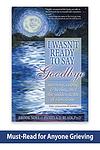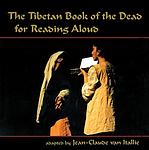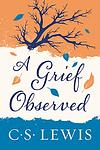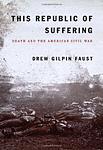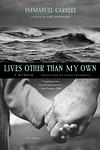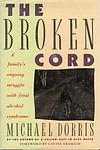The Greatest "Nonfiction, Death & Grief" Books of All Time
Click to learn how this list is calculated.
This list represents a comprehensive and trusted collection of the greatest books. Developed through a specialized algorithm, it brings together 300 'best of' book lists to form a definitive guide to the world's most acclaimed books. For those interested in how these books are chosen, additional details can be found on the rankings page.
Genres
The "Death & Grief" category of books encompasses literature that explores the emotional and psychological impact of loss and mourning. These books may cover topics such as coping with the death of a loved one, navigating the stages of grief, and finding ways to heal and move forward. They may also delve into the cultural and societal rituals surrounding death and mourning, as well as the philosophical and spiritual questions that arise in the face of mortality. Overall, the "Death & Grief" category offers a space for readers to explore and process the complex emotions and experiences that come with loss.
Countries
Date Range
Reading Statistics
Click the button below to see how many of these books you've read!
Download
If you're interested in downloading this list as a CSV file for use in a spreadsheet application, you can easily do so by clicking the button below. Please note that to ensure a manageable file size and faster download, the CSV will include details for only the first 500 books.
Download-
1. The Year of Magical Thinking by Joan Didion
This book is a raw and honest exploration of grief and mourning, written by a woman who lost her husband of 40 years to a heart attack while their only child lay comatose in the hospital. The narrative delves into the year following her husband's death, a year marked by grief, confusion, and a desperate hope for things to return to normal. The author's poignant reflections on death, love, and loss serve as a powerful testament to the resilience of the human spirit.
-
2. A Heartbreaking Work of Staggering Genius by Dave Eggers
A Heartbreaking Work of Staggering Genius is a memoir that follows the life of a young man who, after the cancer-related deaths of his parents, is tasked with raising his 8-year-old brother. The book explores themes of death, family, and the responsibilities that come with sudden adulthood. It is a testament to the strength of the human spirit, showcasing the protagonist's journey through grief, financial struggles, and the challenge of raising a child, all while trying to navigate his own young adulthood.
-
3. The American Way of Death by Jessica Mitford
This book is a critical examination of the funeral industry in the United States. The author explores the various ways in which the industry exploits the grief and vulnerability of the bereaved to upsell expensive services and merchandise, often with little regard for the actual needs or desires of the deceased or their loved ones. She also delves into the cultural and societal norms around death and burial in America, questioning their origins and the extent to which they are perpetuated by the industry for profit.
-
4. Suicide by Emile Durkheim
This classic sociological analysis explores the phenomenon of suicide and its social causes. Written by one of the world's most influential sociologists, this book argues that suicide is more than just an individual decision, but is influenced by social and societal factors. By examining suicide rates among different social categories, the author demonstrates that societal factors such as marital status, religion, and economic stability significantly affect suicide rates. The book is a pioneering work in sociological research, introducing innovative theories and methods that have since become standard in the field.
-
5. On Death and Dying by Elisabeth Kübler-Ross
This groundbreaking book explores the five stages of grief experienced by terminally ill patients. The author, a Swiss-American psychiatrist, introduces the concept of the five stages: denial, anger, bargaining, depression, and acceptance, which has since been universally recognized and applied in various fields. The book is based on the author's series of interviews with dying patients, providing an empathetic and insightful look into the emotional and psychological experiences of those facing death.
-
6. The Tibetan Book of the Dead: Awakening Upon Dying by Padmasambhava, Karma Lingpa
"The Tibetan Book of the Dead: Awakening Upon Dying" is a spiritual guide that explores the stages of death and afterlife from a Tibetan Buddhist perspective. It provides instructions for the dying and the living, offering meditative and contemplative techniques to prepare for death, navigate the intermediate state (Bardo), and achieve liberation. The book serves as a manual for understanding the transition from life to death, making it less of a fearful experience and more of a conscious, spiritual journey.
-
7. Grief Observed by C. S. Lewis
This book is an intimate exploration of a man's grief after the loss of his wife. The author delves deeply into the nature of grief, faith, and love, questioning his own beliefs and grappling with profound feelings of loss and sorrow. With raw honesty, he shares his journey through the various stages of grief, ultimately finding a renewed sense of faith and understanding of God's role in human suffering.
-
8. Nothing to be Frightened Of by Julian Barnes
This book is a memoir that explores the author's fear of death and his quest for meaning in life. It blends elements of autobiography, philosophy, and literary criticism, drawing on the author's personal experiences, his relationships with his family, and his thoughts on writers and philosophers who have influenced him. The narrative is marked by the author's wit, humor, and keen observations, offering a thoughtful and engaging exploration of mortality and the human condition.
-
9. The Noonday Demon by Andrew Solomon
"The Noonday Demon" is a comprehensive exploration of depression, drawing on the author's own struggle with the illness and interviews with fellow sufferers, doctors, and scientists, drug designers, and philosophers. It examines depression in personal, cultural, and scientific terms, covering aspects like the complexities of different treatments and the impact of the disease on various demographic populations. The book also delves into the thorny moral and ethical questions posed by emerging biological explanations for mental illness.
-
10. This Republic of Suffering: Death and the American Civil War by Drew Gilpin Faust
This book examines how the Civil War's unprecedented death toll changed American society, politics, and culture. It explores how the nation grappled with the sheer mass of the dead, the logistics of their burial and mourning, and the profound impact on religious beliefs and practices. It also discusses how the war shaped the nation's understanding of life insurance, pensions, and the role of the federal government in citizens' lives. The book argues that the Civil War transformed how Americans understand death and the value of a human life.
-
11. Lives Other Than My Own by Emmanuel Carrère
"Lives Other Than My Own" is an emotionally charged narrative that explores the lives of two women who have experienced immense loss, one from a tsunami and the other from cancer. The author, through his personal encounters, delves into the raw emotions, resilience, and the profound bonds of family and friendship that emerge from these tragic circumstances. The book is a thoughtful exploration of empathy, offering a poignant look at the strength of human spirit in the face of adversity.
-
12. Wave by Sonali Deraniyagala
"Wave" is a memoir by Sonali Deraniyagala, recounting her experience of losing her entire family in the 2004 Indian Ocean tsunami. Deraniyagala, a Sri Lankan-born economist, was on vacation with her husband, two young sons, and parents when the wave hit. She was the only survivor. The book is a raw and emotional account of her grief and struggle to come to terms with the loss of her loved ones, as well as her own identity and sense of purpose. Through her writing, Deraniyagala confronts the complexities of survivor's guilt, trauma, and the enduring power of love.
-
13. A Death in the Family by Karl Ove Knausgaard
"A Death in the Family" is a deeply personal and introspective narrative that delves into the complexities of familial relationships, childhood, death, and memory. The protagonist, a writer, is forced to confront his past and his relationship with his alcoholic father after his death. The novel explores the impact of this death on the protagonist's life and his struggle to come to terms with his complicated feelings of love, resentment, and guilt. The narrative is a profound exploration of the human condition, the intricacies of family dynamics, and the lasting impact of grief and loss.
-
14. The Broken Cord by Michael Dorris
This book is a poignant memoir of a single man who adopts a three-year-old American Indian boy, only to discover several years later that his son suffers from fetal alcohol syndrome, a condition that was not well understood at the time. The narrative chronicles the man's journey to understand and cope with his son's condition, while also shedding light on the devastating effects of alcohol abuse on unborn children. The book also delves into the broader social issues surrounding Native American communities and the systemic problems that contribute to alcoholism among these populations.
-
15. The Light of the World by Elizabeth Alexander
"The Light of the World" is a deeply moving memoir about the author's life with her husband, an Eritrean-born chef and painter, their love story, and the grief and healing she experiences after his sudden death. The book is a reflection on their family life, their shared passion for art, and the author's journey through the pain of loss. It's a poetic tribute to a life well-lived and the enduring power of love.
-
16. Levels of Life by Julian Barnes
This introspective and deeply moving book is a three-part meditation on love, loss, and the nature of grief. The first part explores the history of ballooning and photography, the second tells a fictional tale of a love affair between two balloonists in the 19th century, and the third part is a poignant memoir of the author's grief following the death of his wife. The book beautifully intertwines these threads to explore the profound impact of love and the deep pain of loss, while offering a raw and honest look at the grieving process.
-
17. This House of Grief by Helen Garner
This book is a true crime story about a man who is accused of murdering his three sons by driving them into a dam in Australia. The narrative follows the court case, providing a detailed account of the proceedings and evidence presented. It also delves into the emotional turmoil of the family and community, exploring themes of grief, loss, and the search for truth. The author's journalistic style of writing offers a balanced and thoughtful perspective on this tragic event.
-
18. The Denial of Death by Ernest Becker
"The Denial of Death" is a thought-provoking examination of the influence of death on human behavior and society. The author argues that the fear of death is a primary motivator in human life, influencing our actions, beliefs, and relationships. He explores how culture and religion are often mechanisms to deny and transcend the reality of death, offering symbolic immortality through beliefs in the afterlife or in the enduring impact of one's life work. The book also delves into the psychological impact of this denial and the concept of the "heroic individual" who seeks to leave a lasting legacy.
-
19. How We Die: Reflections on Life's Final Chapter by Sherwin B. Nuland
This book is a contemplative exploration of death from a medical perspective, aiming to demystify the process of dying. It delves into the most common causes of death, including old age, cancer, heart disease, AIDS, accidents, and more, providing detailed descriptions of what happens to the body. The author, a surgeon, combines personal stories, historical analysis, and medical knowledge to provide a compassionate and realistic view of the end of life, encouraging readers to live fully and fearlessly.
Reading Statistics
Click the button below to see how many of these books you've read!
Download
If you're interested in downloading this list as a CSV file for use in a spreadsheet application, you can easily do so by clicking the button below. Please note that to ensure a manageable file size and faster download, the CSV will include details for only the first 500 books.
Download

